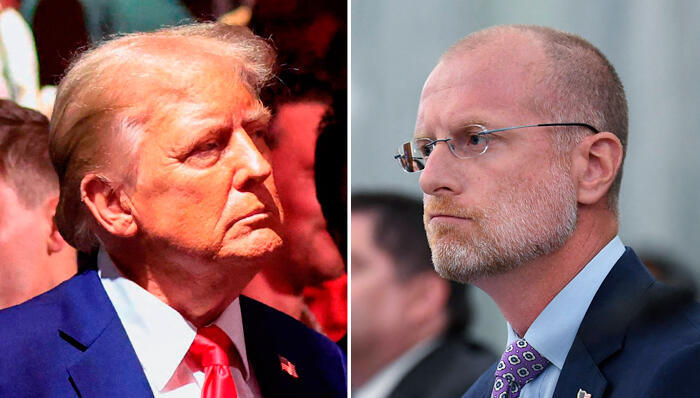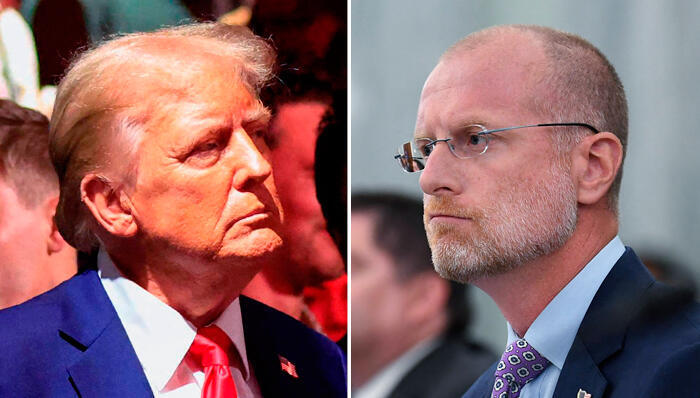
Silicon Valley’s gamble on Trump faces early test as FCC appointment sparks tensions
Silicon Valley’s gamble on Trump faces early test as FCC appointment sparks tensions
Hopes for friendlier relations fade as Brendan Carr’s appointment raises the stakes for Big Tech regulation.
When Donald Trump won the U.S. presidential election this month, many in Silicon Valley hoped his second term would bring friendlier relations with Western tech companies. After all, some prominent figures in the tech ecosystem backed him during the campaign. However, Trump’s recent appointment to a key media regulator suggests otherwise: he still harbors deep grievances against the tech giants, and his administration is unlikely to make life easier for them—except, perhaps, for Apple.
Trump’s first term was marked by relentless clashes with Silicon Valley, which largely represented liberal opposition to his often polarizing and controversial policies. Yet, in recent months, there has been a noticeable shift in attitudes toward Trump within the Valley. Several influential figures—most notably Elon Musk, along with super-investors Marc Andreessen and Ben Horowitz—expressed explicit support for his candidacy and contributed millions of dollars to his campaign. Others, such as Meta founder Mark Zuckerberg, offered reserved praise, even if stopping short of full endorsement. This time, they hoped, would be different. This time, collaboration with the president seemed possible.
Indeed, some sectors of Silicon Valley might benefit from Trump’s favor—Musk and his businesses chief among them. Areas like artificial intelligence (AI) and cryptocurrency are also poised for more lenient and even progressive regulation, evidenced by Bitcoin’s record-breaking surge following Trump’s victory. However, Trump’s early decisions indicate that the broader tech industry, particularly its largest players, will face significant challenges under his administration.
The clearest signal came on Monday when Trump announced his decision to appoint Brendan Carr as chairman of the Federal Communications Commission (FCC), the regulatory authority overseeing media, broadband, and telecommunications. While the FCC traditionally governs issues like network deployment, net neutrality, and frequency allocation, Carr’s leadership could transform it into a powerful force against the tech giants.
A hardline ultra-conservative
Carr, 45, currently serves as one of the FCC’s commissioners and played a pivotal role in drafting the FCC section of Project 2025—the Heritage Foundation’s comprehensive, ultra-conservative policy roadmap for Trump’s second term. Known for his staunch criticism of Big Tech, Carr recently referred to the industry as a “censorship cartel” that “needs to be dismantled.” He believes the FCC should play a central role in regulating companies like Apple, Google, Meta, and Microsoft.
“The FCC has an important role to play in addressing the threats to individual liberty posed by corporations that are abusing dominant positions in the market. Nowhere is that clearer than when it comes to Big Tech and its attempts to drive diverse political viewpoints from the digital town square,” Carr wrote in Project 2025.
Carr has outlined specific measures the FCC could take to curb Big Tech’s power. One of his primary goals is to repeal Section 230 of the 1996 Communications Decency Act, which protects online platforms from being held legally responsible for user-generated content. He also advocates for imposing stricter transparency requirements on tech companies regarding decisions such as Google’s search result rankings, Facebook’s content moderation policies, and YouTube’s demonetization practices. Another proposal involves creating rules to strengthen user rights in their interactions with these companies.
Carr also supports additional taxation on tech giants, requiring them to contribute to the Universal Service Fund—a $9 billion initiative that funds internet access in rural areas. Regarding TikTok, Carr has called for outright banning the platform in the U.S.
If confirmed by the Senate as FCC chairman, Carr will be well-positioned to advance his agenda, aiming to tighten government oversight of tech giants and impose stricter regulations on their operations.
Apple’s unique position
Not every tech company stands to lose under Trump’s presidency. Besides Musk, another likely beneficiary is Apple. Unlike competitors such as Meta and Google, Apple does not operate social media platforms or search engines, areas that often provoke Republican criticism. However, Apple still faces a significant challenge: Trump’s proposed tariffs on imports from China, which could impact the production of many of Apple’s products.
The upcoming term remains uncertain for the tech industry. While most companies brace for tougher regulations and potential conflicts, Apple appears to approach the new administration with cautious optimism.















